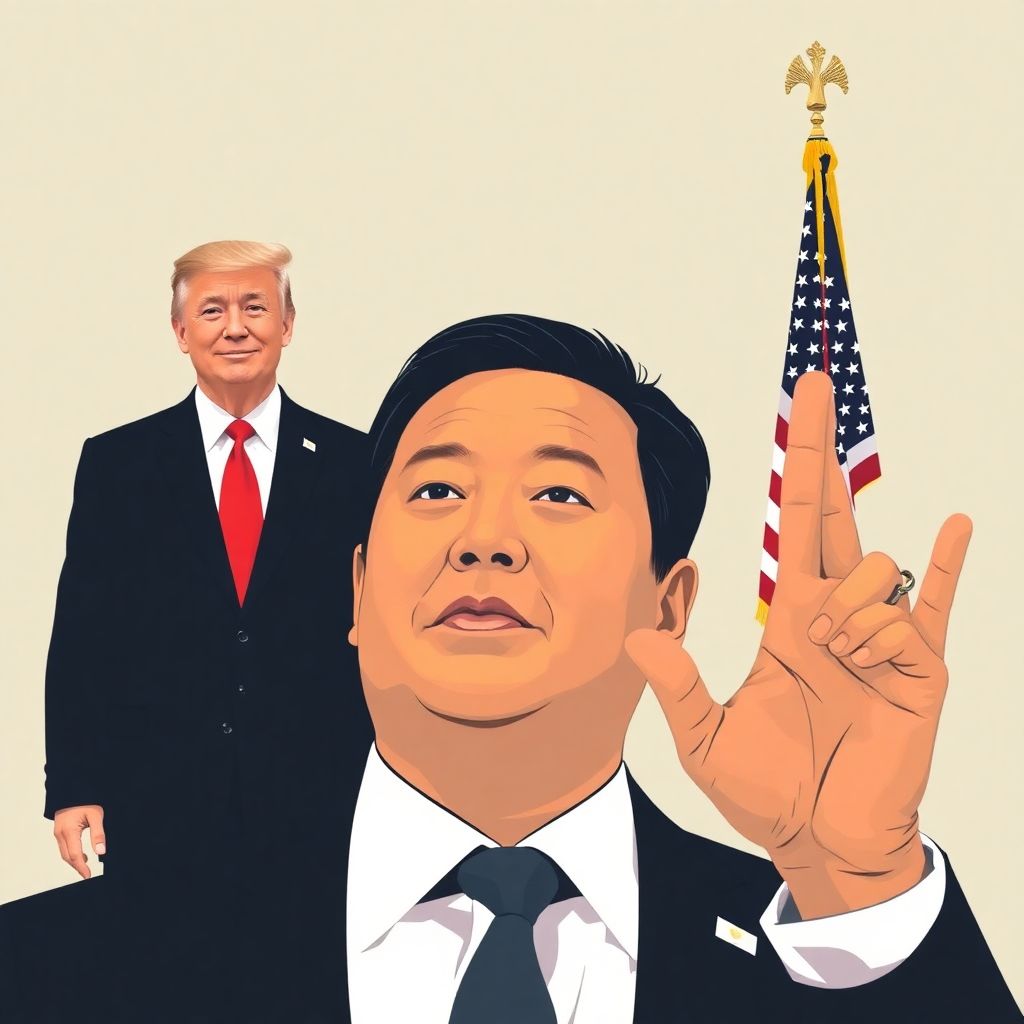Trump’s recent presidential pardon of Binance founder Changpeng Zhao, known as CZ, is stirring a new wave of controversy in Washington, with critics raising allegations of political favoritism and corruption. The decision to pardon Zhao, who had previously pled guilty to violating anti-money laundering (AML) regulations in 2023, has reignited scrutiny over potential ties between the former president and the cryptocurrency exchange giant.
According to reports, representatives for CZ allegedly approached Trump’s team shortly after his election victory, offering cooperation in exchange for clemency. Central to this alleged arrangement was Binance’s involvement with World Liberty Financial (WLFI), a decentralized finance (DeFi) initiative backed by the Trump family. WLFI has become known for its stablecoin, USD1, which gained significant traction throughout 2024.
An investigation revealed that Binance played a key role in helping WLFI develop and promote USD1. Furthermore, the exchange was reportedly instrumental in securing a $2 billion investment into the WLFI platform from a state-linked Emirati investor—an investment transacted via the USD1 stablecoin. These developments have prompted critics to question whether Binance’s support of WLFI was a strategic move aimed at securing political favor.
In total, WLFI is said to have generated $1.4 billion in revenue in 2024, with a substantial portion attributed to the growing influence of USD1 and the sale of its native WLFI token. Despite these financial successes, WLFI has denied any involvement in lobbying for Zhao’s pardon. The company’s legal representative, Tom Clare, stated unequivocally that WLFI “never assisted in, facilitated, or influenced a decision on Mr. Zhao’s presidential pardon.”
Still, the timing of Binance U.S.’s listing of USD1 just days after the pardon announcement has only deepened suspicions. Prominent lawmakers, including Senator Chris Murphy, have condemned the move, branding the White House as a “24/7 corruption machine.” Senator Elizabeth Warren echoed these concerns, accusing CZ of financing Trump’s stablecoin project in exchange for leniency. She labeled Zhao a convicted criminal, referencing his guilty plea and implying that the pardon was a transactional gesture.
In response, Zhao emphasized that his conviction was not for money laundering itself but rather for failing to implement adequate AML systems within Binance. He has publicly threatened to sue Senator Warren for defamation, asserting that her comments mischaracterize the legal facts of his case.
Despite the backlash, many voices within the cryptocurrency community have defended the pardon. Advocates argue that Zhao was targeted unfairly and that his punishment had already been served. David Bailey, a prominent figure in the crypto space, hailed the pardon as “justice served,” calling the charges against Zhao “punitive” rather than constructive.
Zhao had received a four-month prison sentence and paid a $50 million fine as part of his plea agreement. Binance, meanwhile, was hit with a staggering $4.3 billion in penalties. Following his conviction, Zhao was barred from holding any leadership roles in the U.S. or conducting business in the country. However, Trump’s pardon has now restored his full civil and business rights, clearing the way for a potential return to Binance’s executive leadership.
The broader implications of the pardon raise questions about the intersection of political power and crypto finance. Critics argue that such moves undermine public trust in regulatory fairness and open the door to influence-peddling in exchange for financial or political gain.
This episode is also likely to shape future discourse around crypto regulation in the United States. With more politicians becoming involved in crypto ventures, concerns are rising over conflicts of interest and the need for transparent oversight. Lawmakers may push for stricter lobbying disclosures and tighter controls on political contributions and business affiliations in the digital asset space.
Furthermore, the case reinforces how crypto firms are increasingly entangled in geopolitical and economic strategies. The reported involvement of an Emirati investor in WLFI underscores how global capital is flowing into politically sensitive fintech projects, potentially complicating international relations and financial regulation.
The incident also raises the question of whether former presidents should be allowed to issue pardons that appear to benefit their own business ties or ventures. Calls for reforming the presidential pardon power, especially in cases involving financial crimes or political actors, may gain momentum as a result.
In the meantime, Binance’s future remains uncertain. While Zhao’s restoration of rights opens the door for leadership changes, the exchange continues to face regulatory scrutiny in various jurisdictions. How it navigates this post-pardon landscape will be closely watched by investors, regulators, and political observers alike.
For the crypto industry as a whole, the controversy underscores the importance of maintaining clear ethical boundaries and transparency, especially as more companies seek legitimacy in traditional financial and political spheres. As crypto continues to integrate with mainstream systems, the consequences of blurred lines between business and politics are becoming increasingly apparent.

